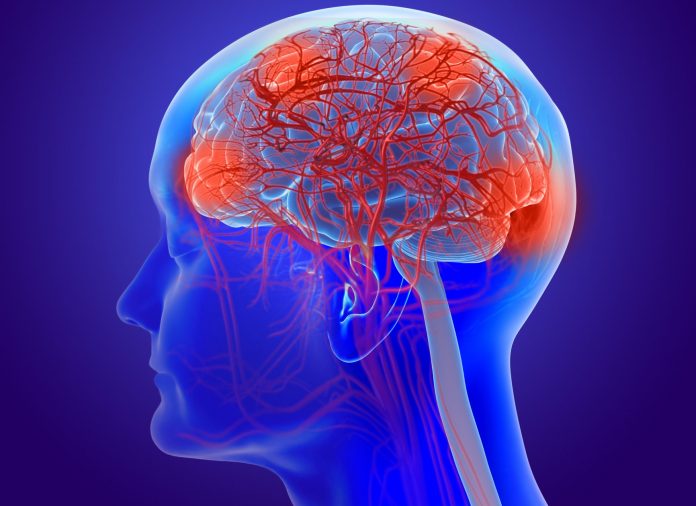
Researchers at the Medical College of Georgia at Augusta University have uncovered a link between disease of small blood vessels that feed the white matter of the brain and worse cognitive function in patients with Alzheimer’s.
White matter accounts for almost 50% of brain mass, enables different regions of the brain to communicate and is packed with microscopic arterioles that directly feed the tissue with blood, oxygen and nutrients. Changes in white matter have been linked to Alzheimer’s in the past. A new study is now connecting disease in the microscopic arterioles to changes in the tissue and impaired cognition.
The findings of the study, published in GeroScience revealed that the arterioles of individuals diagnosed with Alzheimer’s and microvascular dysfunction had difficulty dilating in comparison to individuals with Alzheimer’s and no microvascular dysfunction, leading to white matter injury, inflammation and cognitive decline.
“The main message … is the mixed pathology as we call it—microvascular disease and Alzheimer’s —is associated with more brain damage, more white matter damage and more inflammation,” said Zsolt Bagi, PhD, professor at the Medical College of Georgia at Augusta University, and co-author of the study in a press statement.
“We are proposing that if you prevent development of the microvascular component, you may at least add several years of more normal functioning to individuals with Alzheimer’s.”
This research adds to recent findings published in European Radiology which suggest that some people with Alzheimer’s who have brain changes widely associated with the condition, such as amyloid plaques, may not develop dementia without this underlying vascular dysfunction.
The researchers note that vascular disease is potentially modifiable by reducing major risk factors like hypertension, obesity, diabetes and inactivity. “… individuals might especially benefit if they would exercise, control blood sugar level and control their blood pressure,” Bagi said in a press statement.
“You have some genetic predisposition but people realize that not everybody develops memory decline or cognitive deficits unless something else is coming in.”
The findings add to previous research published in The Journal Of Neuroscience suggesting that small blood vessel disease may predict the severity of dementia and may help identify those patients in early enough stages of the disease which could benefit from treatments to reduce or slow vascular dysfunction, potentially delaying or reducing their cognitive loss.
The researchers agree that more studies will be needed to better understand exactly how the small blood vessel disease occurs, which could uncover potential new drug targets to intervene.













